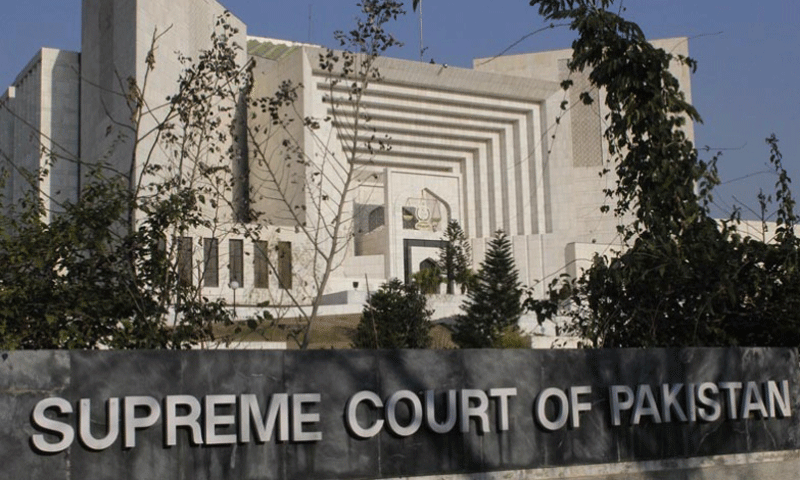Pakistan’s Supreme Court allows live streaming of petitions challenging 26th Amendment
Public has right to access matters of national importance, says petitioner
Ali Hamza
Correspondent
Ali; a journalist with 3 years of experience, working in Newspaper. Worked in Field, covered Big Legal Constitutional and Political Events in Pakistan since 2022. Graduate of DePaul University, Chicago.

Pakistan’s Supreme Court on Tuesday allowed live streaming of proceedings in a set of petitions challenging the country’s 26th Constitutional Amendment.
An eight-member constitutional bench, headed by Justice Aminuddin Khan, began hearing the petitions amid debate over whether the case should be broadcast live and whether a full court should be formed to hear the matter.
At the outset, lawyer Shahid Jameel, representing petitioner Mustafa Nawaz Khokhar, said objections had been raised to their plea seeking the formation of a full court.
He requested the court decide the appeal first, after which the bench directed the office to number the appeal.
Former Chief Justice Jawwad S. Khawaja’s counsel, Khawaja Hussain Ahmad, then urged the court to allow live streaming, saying, “the whole nation wants to see what is happening.”
Justice Khan responded that both requests — for a full court and for live streaming — were under consideration, noting that if the bench’s composition was challenged, another bench would hear those objections.
Justice Jamal Khan Mandokhail remarked during the session that while live streaming was intended to educate the public, “our tragedy is that we misuse everything.”
Additional Attorney General Aamir Rehman said the issue of live streaming falls under the court’s administrative jurisdiction, adding that the government would comply with whatever the bench decided.
Representing the Khyber Pakhtunkhwa government, its lawyer said that while they had no personal objections to the current bench, they believed a full court should hear such an important constitutional case.
Barrister Salahuddin, another petitioner, backed the request for live streaming, arguing that the 26th Amendment was passed “in the darkness of night” without public consultation.
He said the public had the right to access matters of national importance, citing previous live broadcasts of major cases such as the Bhutto reference and the election symbol case.
Calling the case “the most significant of the century,” Salahuddin said it should be heard by a full constitutional bench “in daylight — and live for transparency.”
The 26th Amendment, enacted earlier this year, introduced constitutional benches within the Supreme Court to handle cases involving fundamental questions of law.
While supporters say the move aims to streamline judicial interpretation, legal experts warn it has instead deepened internal divisions within Pakistan’s highest court.










Comments
See what people are discussing